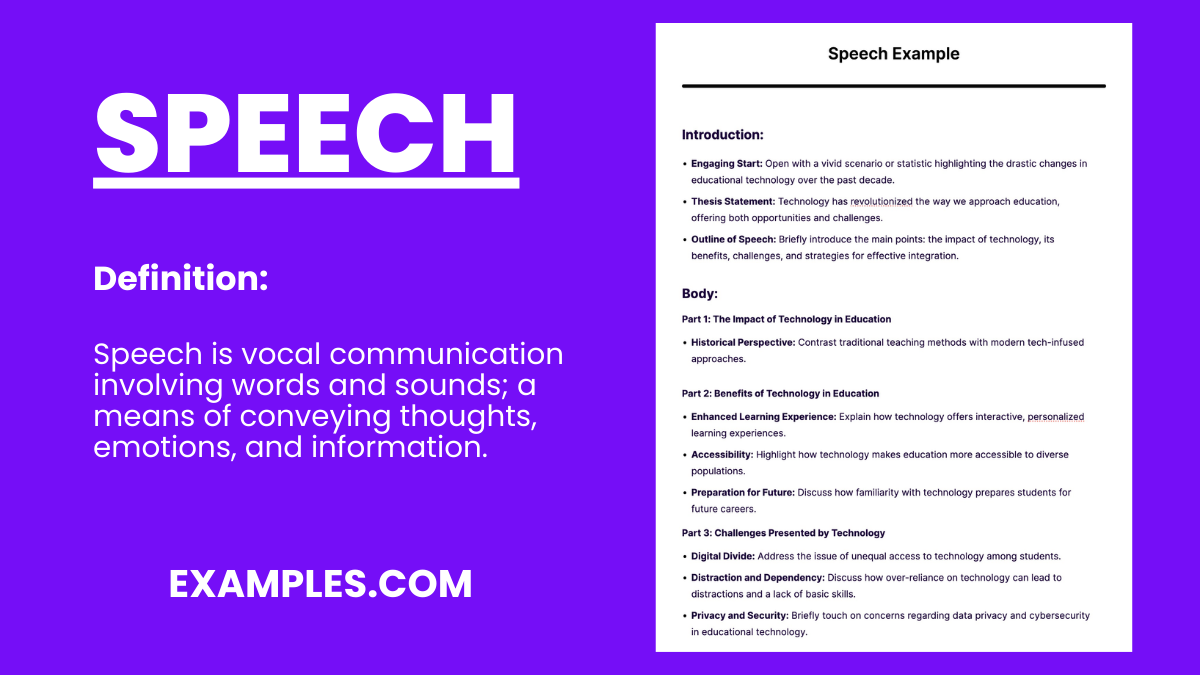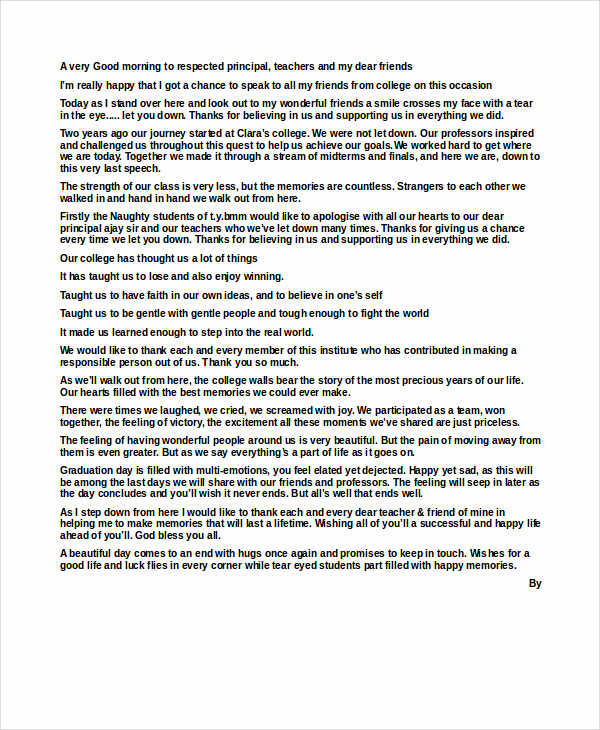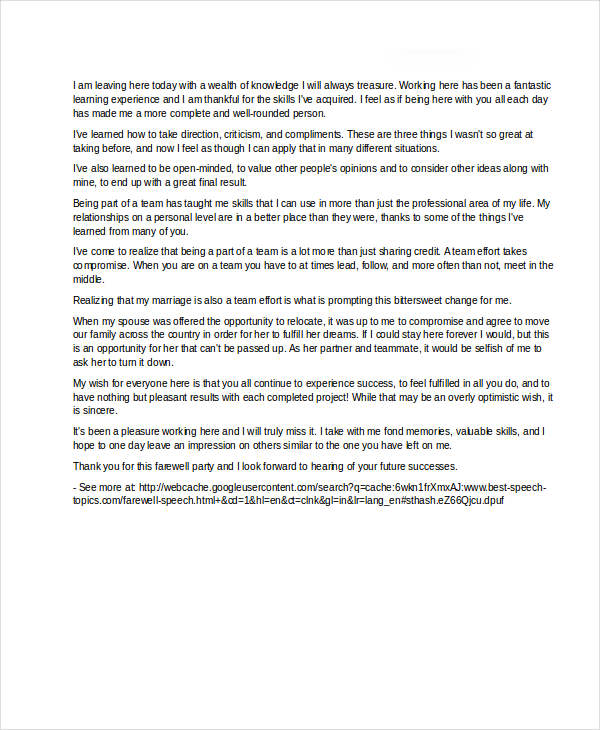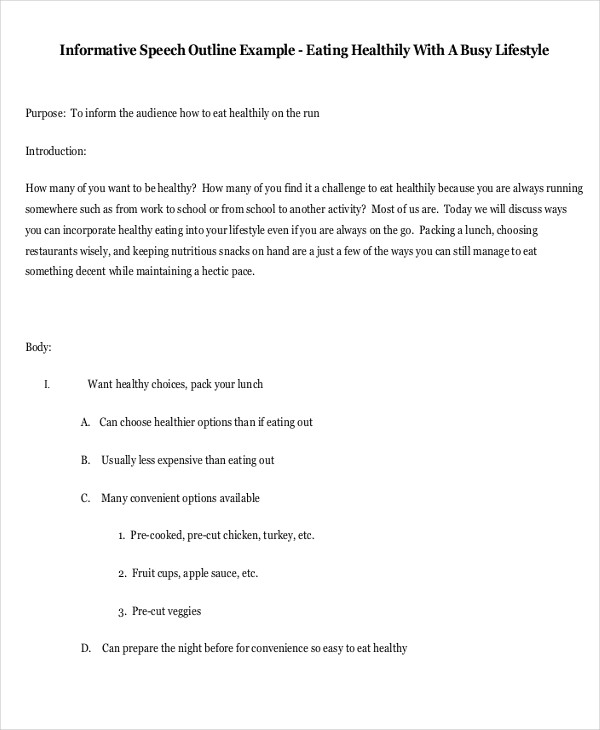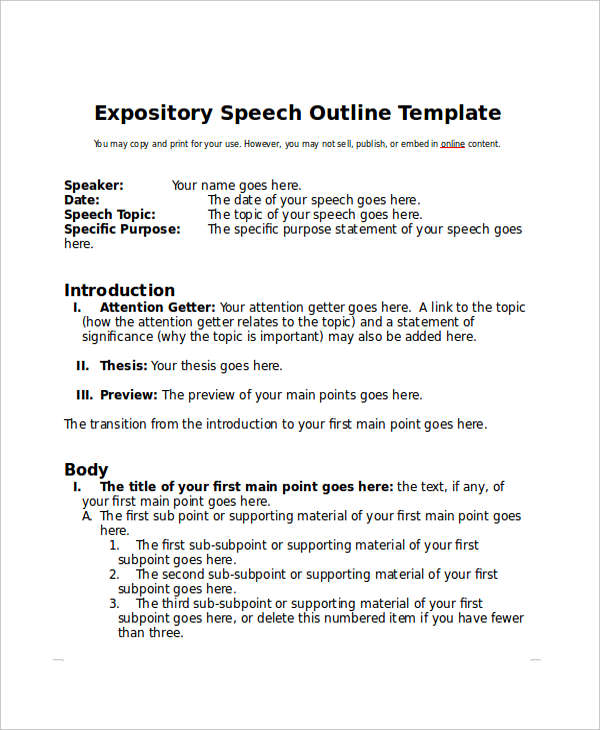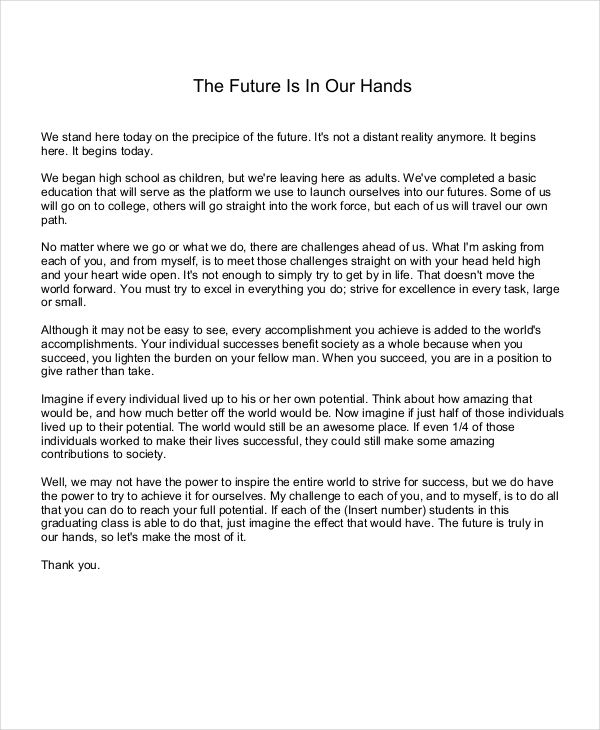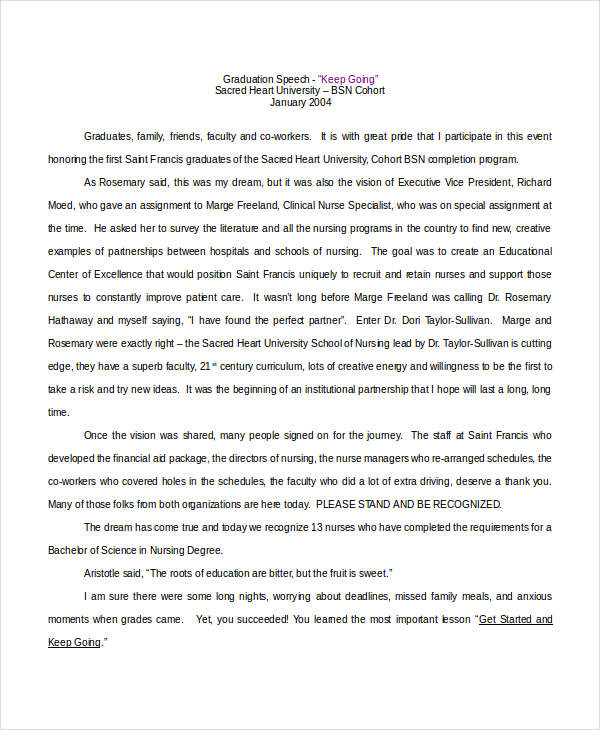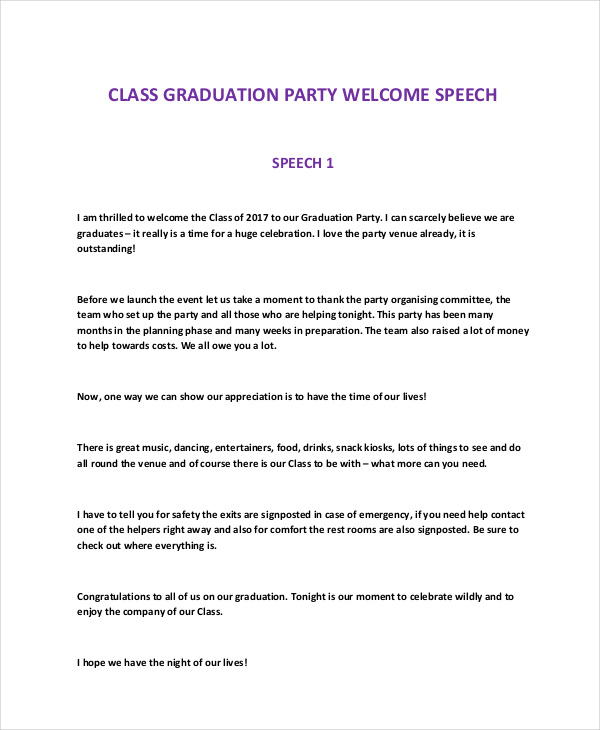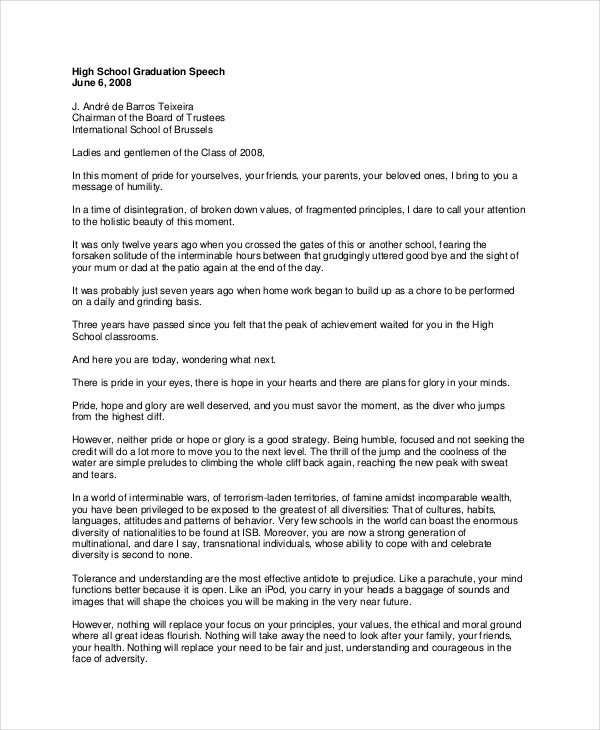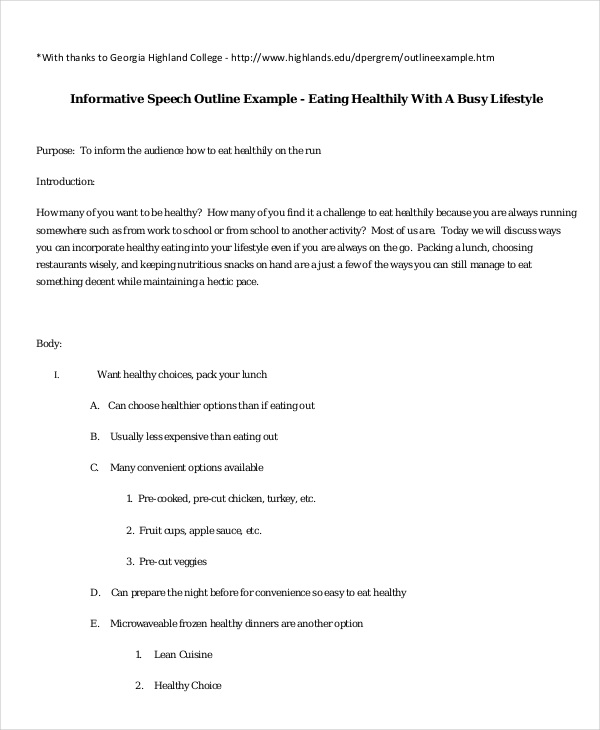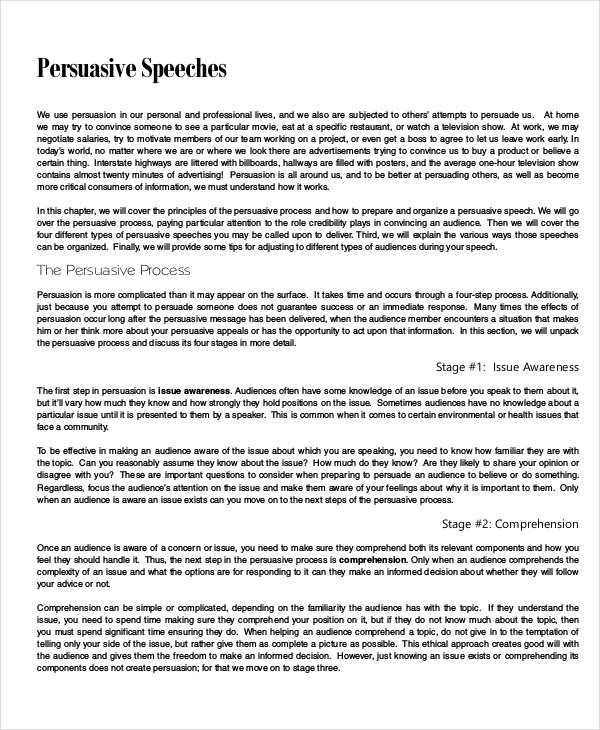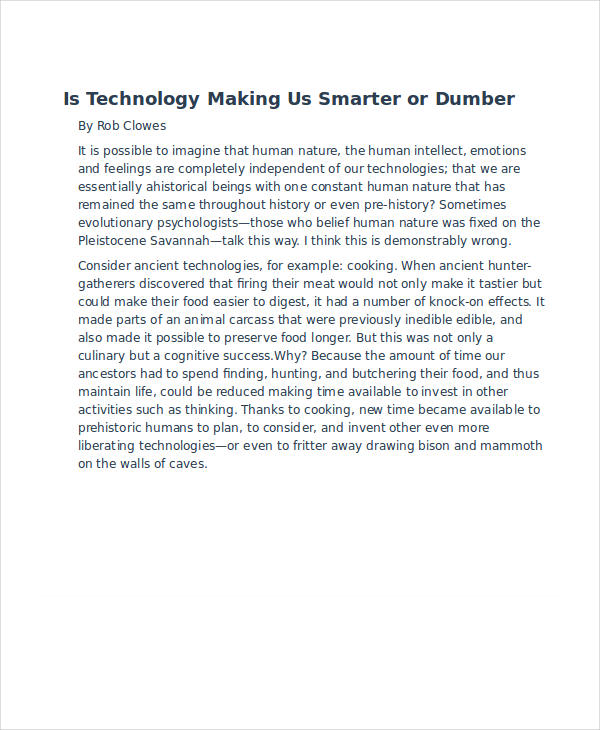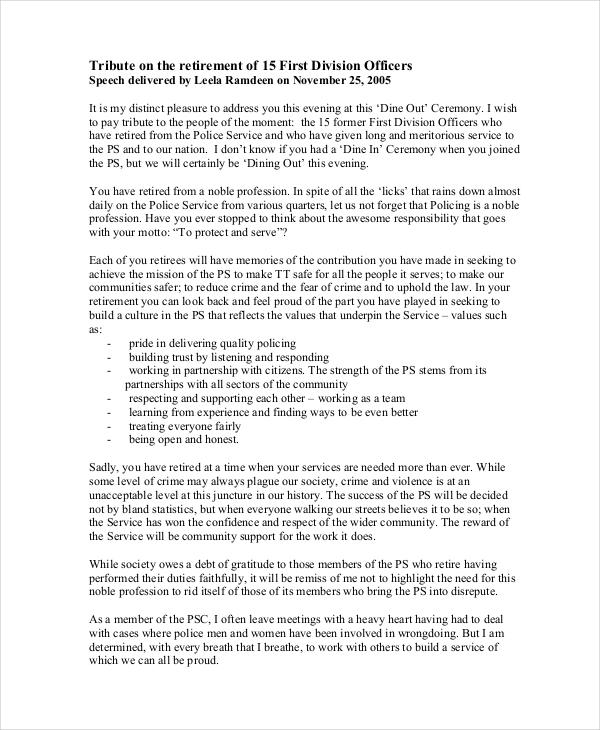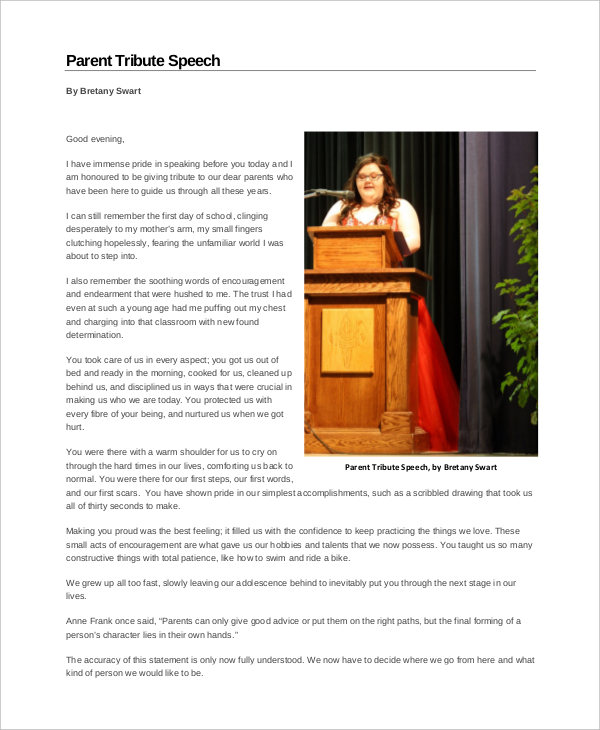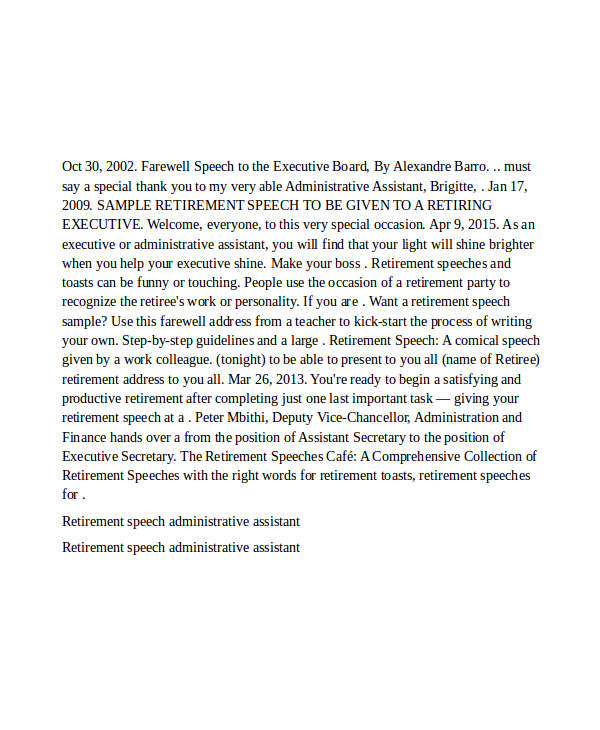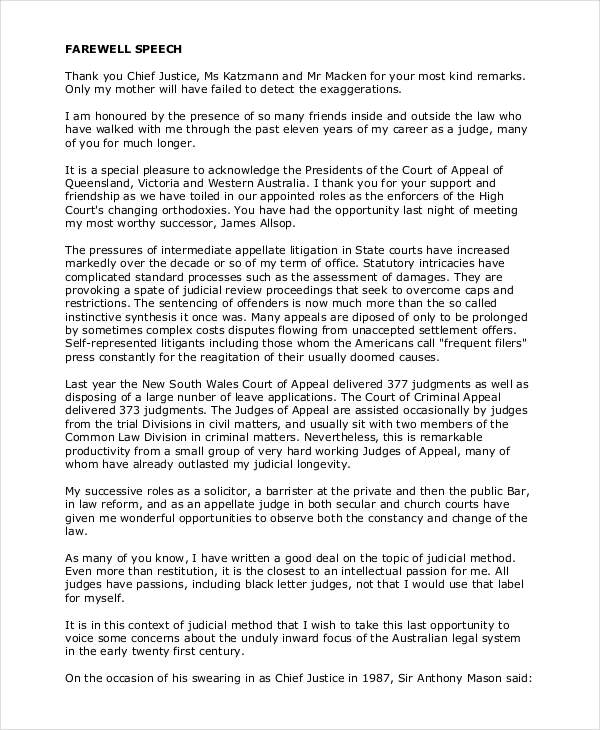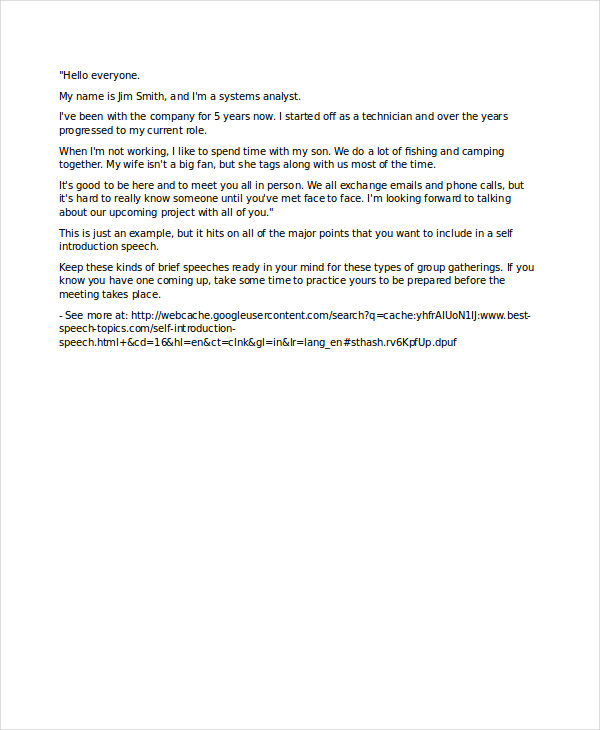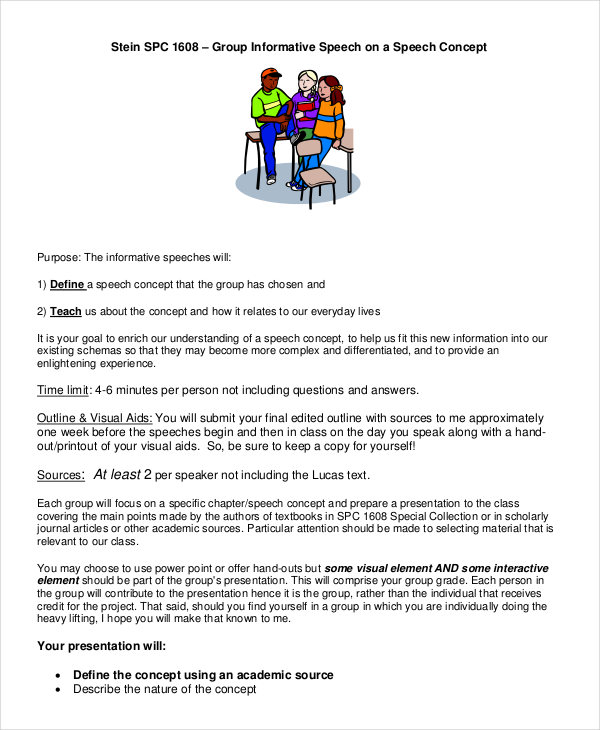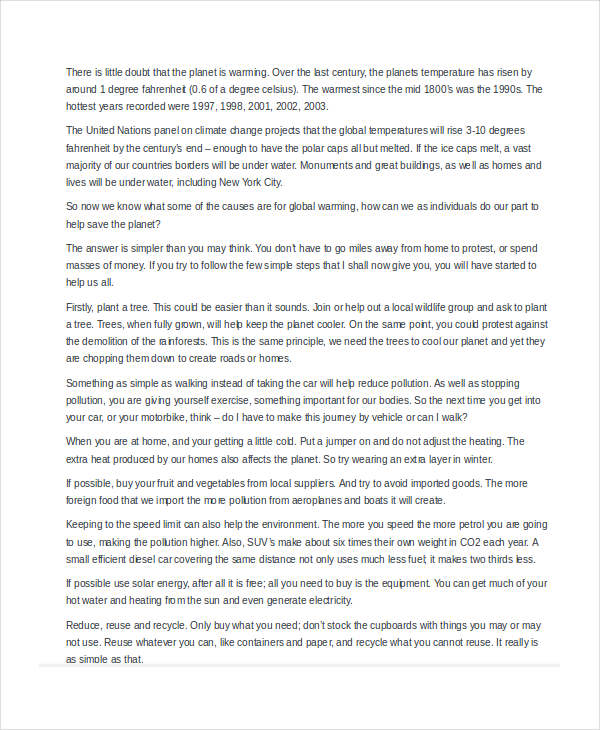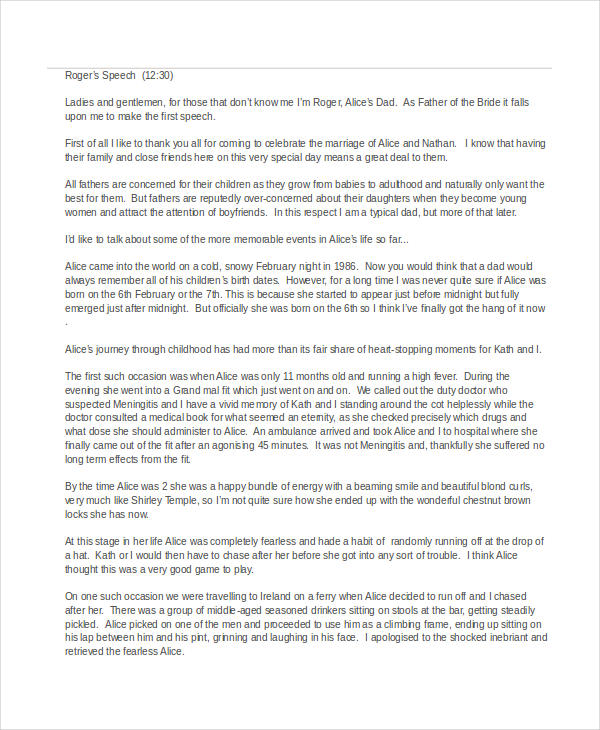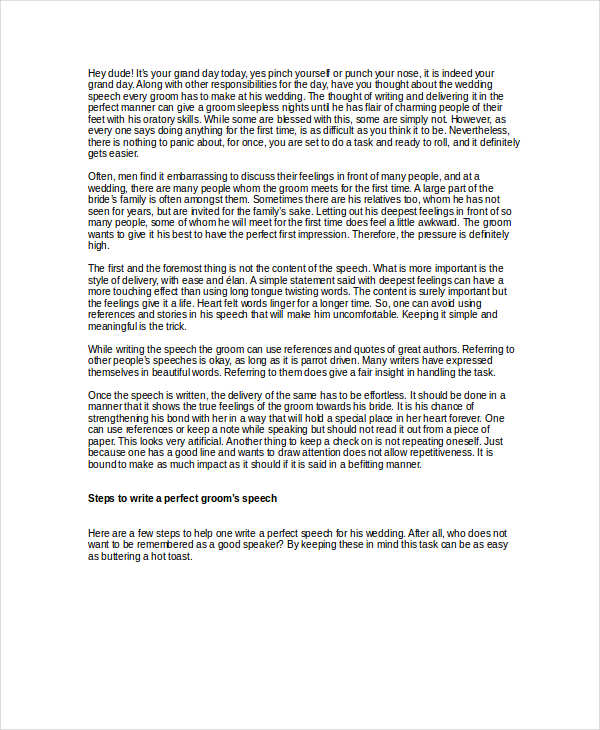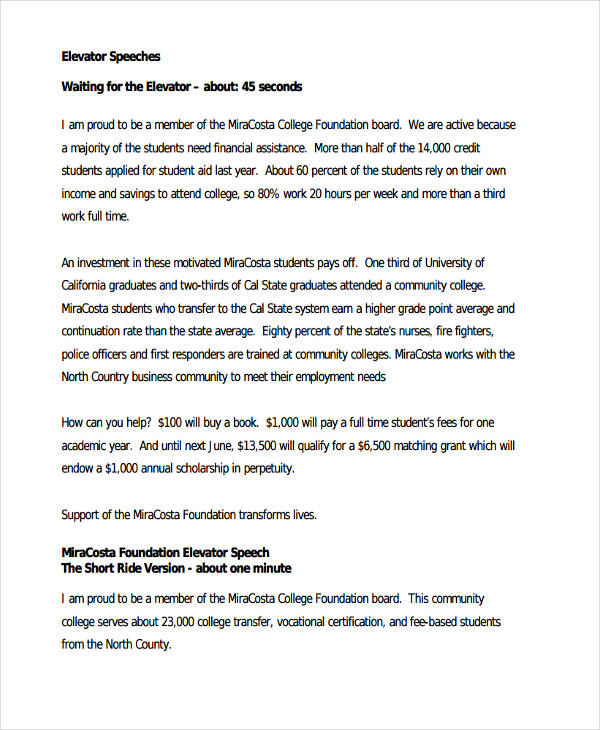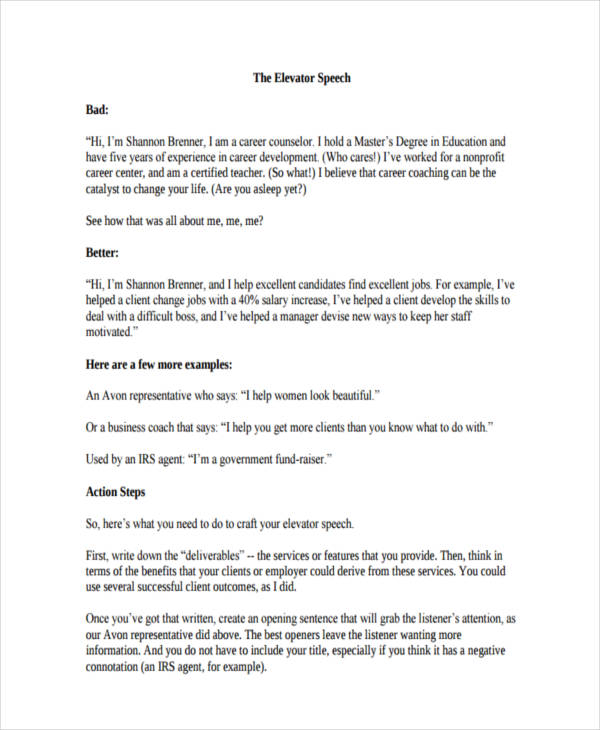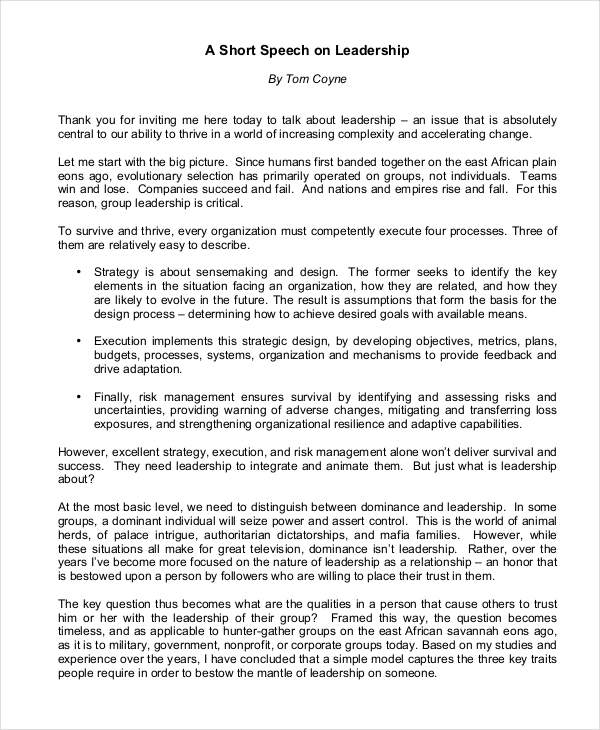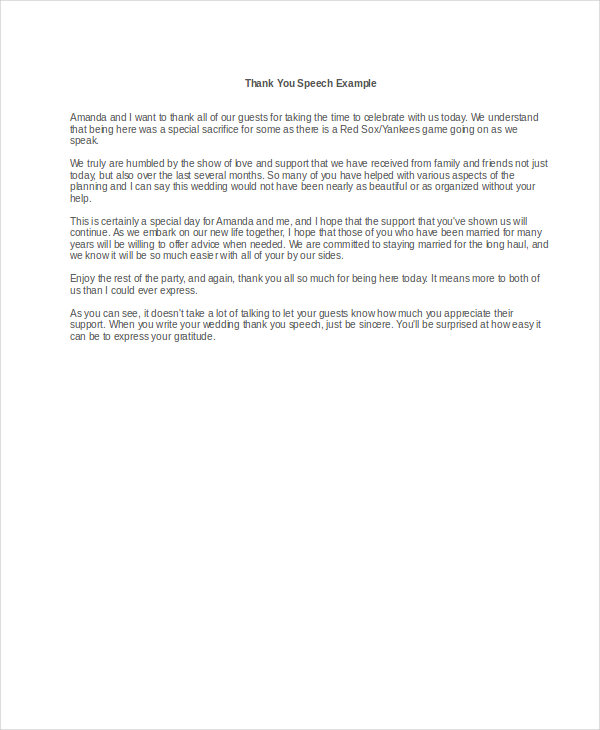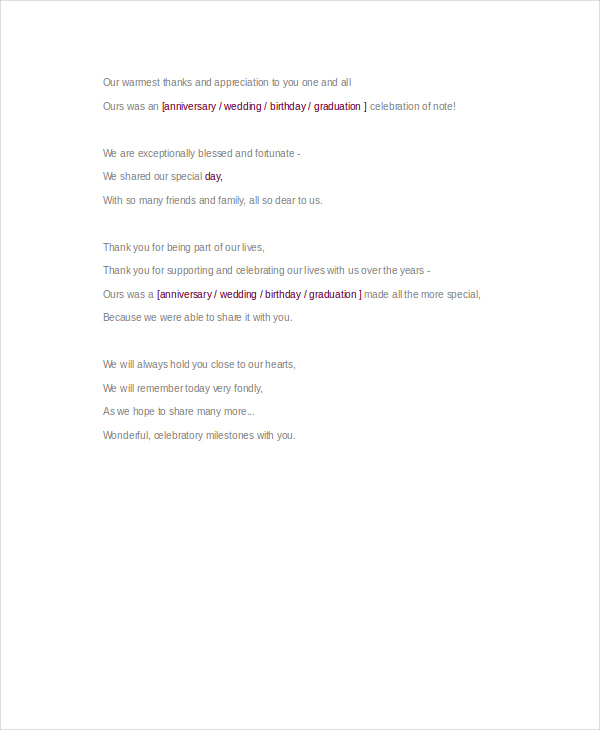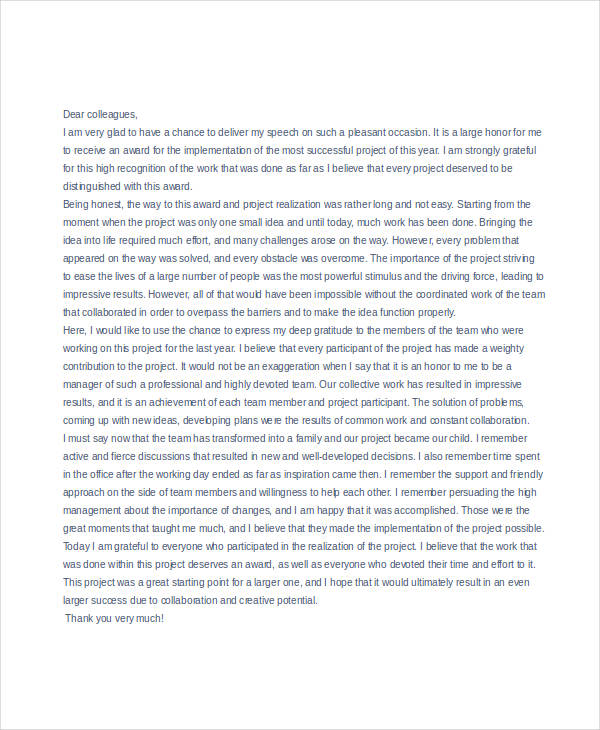37+ Speech Examples to Download
Writing a welcome speech can be a tricky task. There are multiple bases that need to be covered and you have to make sure you don’t lose track of the main point. With a constant flow of ideas, it’s natural for one to get sidetracked so easily. It’s important for you to organize your thoughts properly.
To deliver the perfect speech is a whole other challenge. You need to develop a set of speech skills for your speech template to receive its desired impact. It can be nerve-racking to speak in front of an audience. It requires constant practice and constructive criticism to become better.
What is Speech Definition & Meaning
Speech refers to the expression of thoughts and feelings through spoken language. It is the act of talking and communicating verbally with others, using words to convey ideas, information, or emotions. Speech can range from everyday conversation to formal presentations and public speaking. It’s a primary way humans interact and share information with one another.
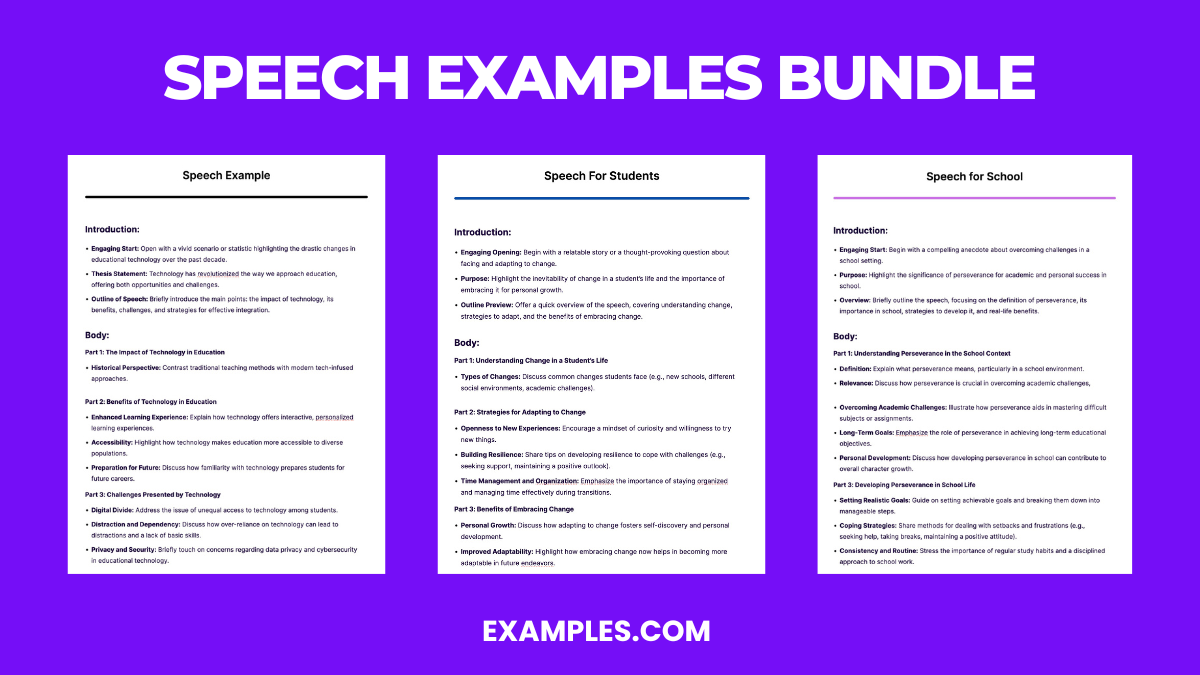
Download Speech Example Bundle
Speech template has been part of our life since we were young. It is the first thing that we learn and taught to us. It is our main form of communication and without it, we could not achieve diplomacy. Without speech, there will be no world peace. Yes, speech has been known to create peace in our time. Remember Martin Luther King? His speech “I Have A Dream” that inspires millions of people. That alone is leadership speech that convinces people to stand up and fight for what is right. A speech no matter, how short can have a huge impact on the one listening.
Speech Example
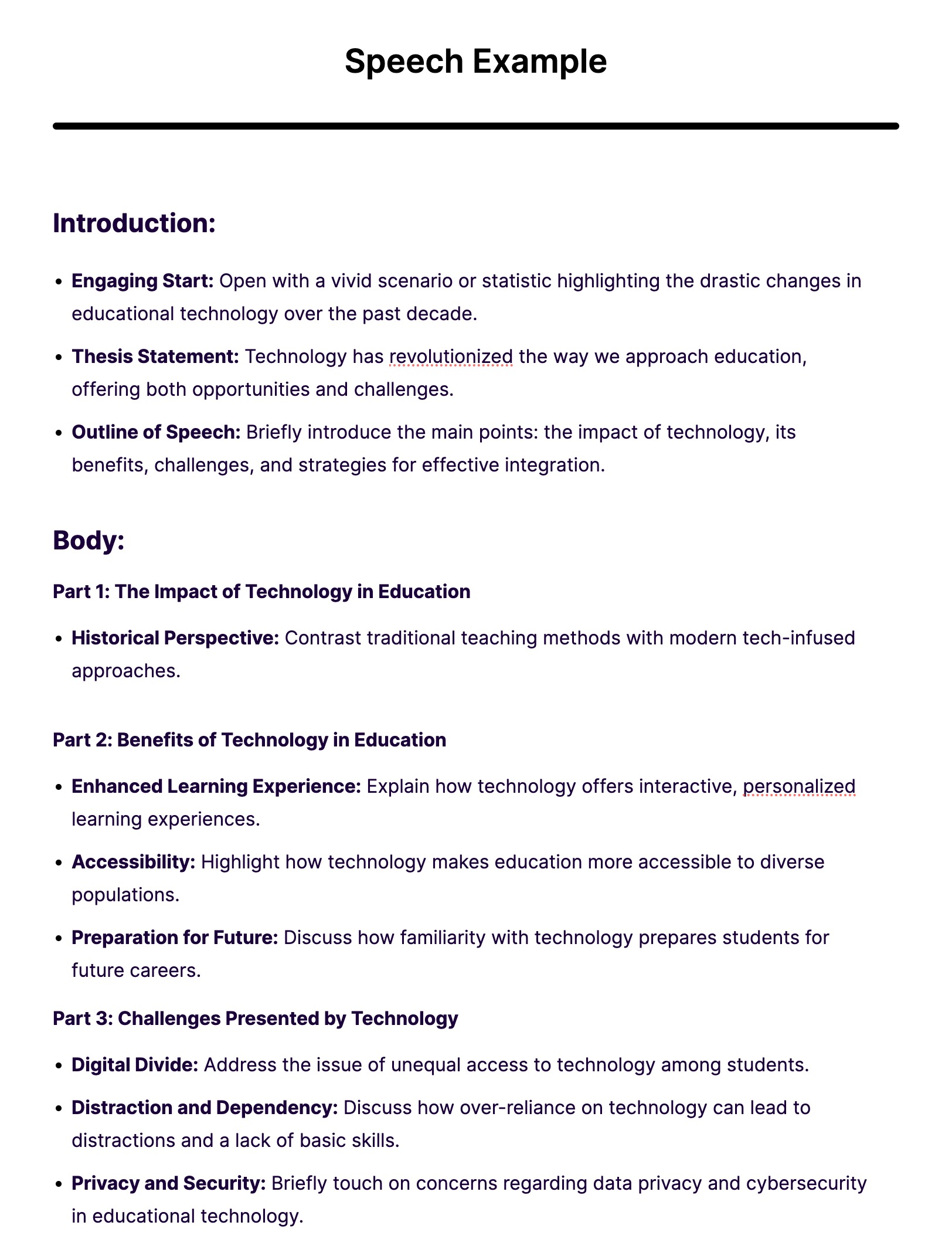
Speech For Students
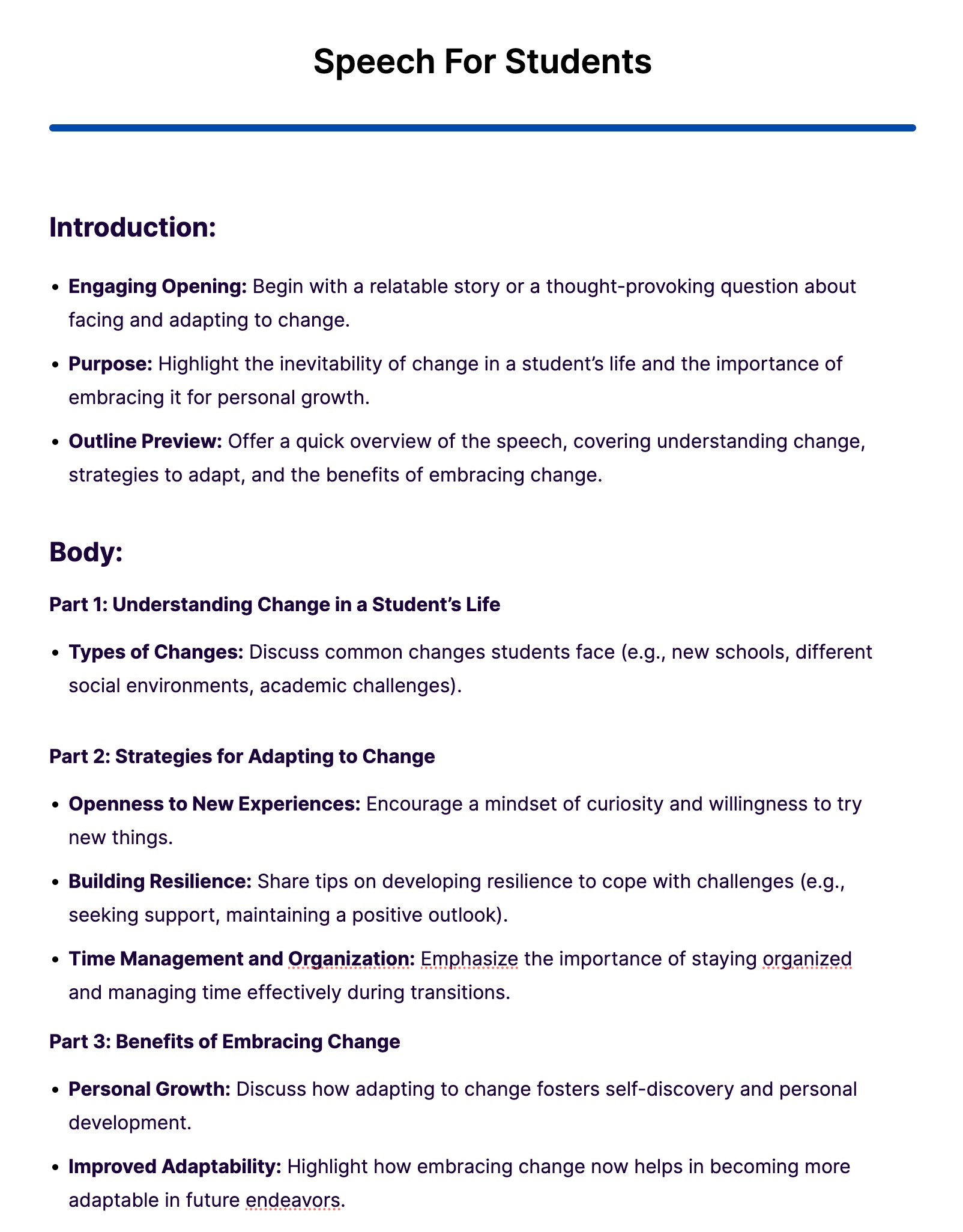
Speech for School
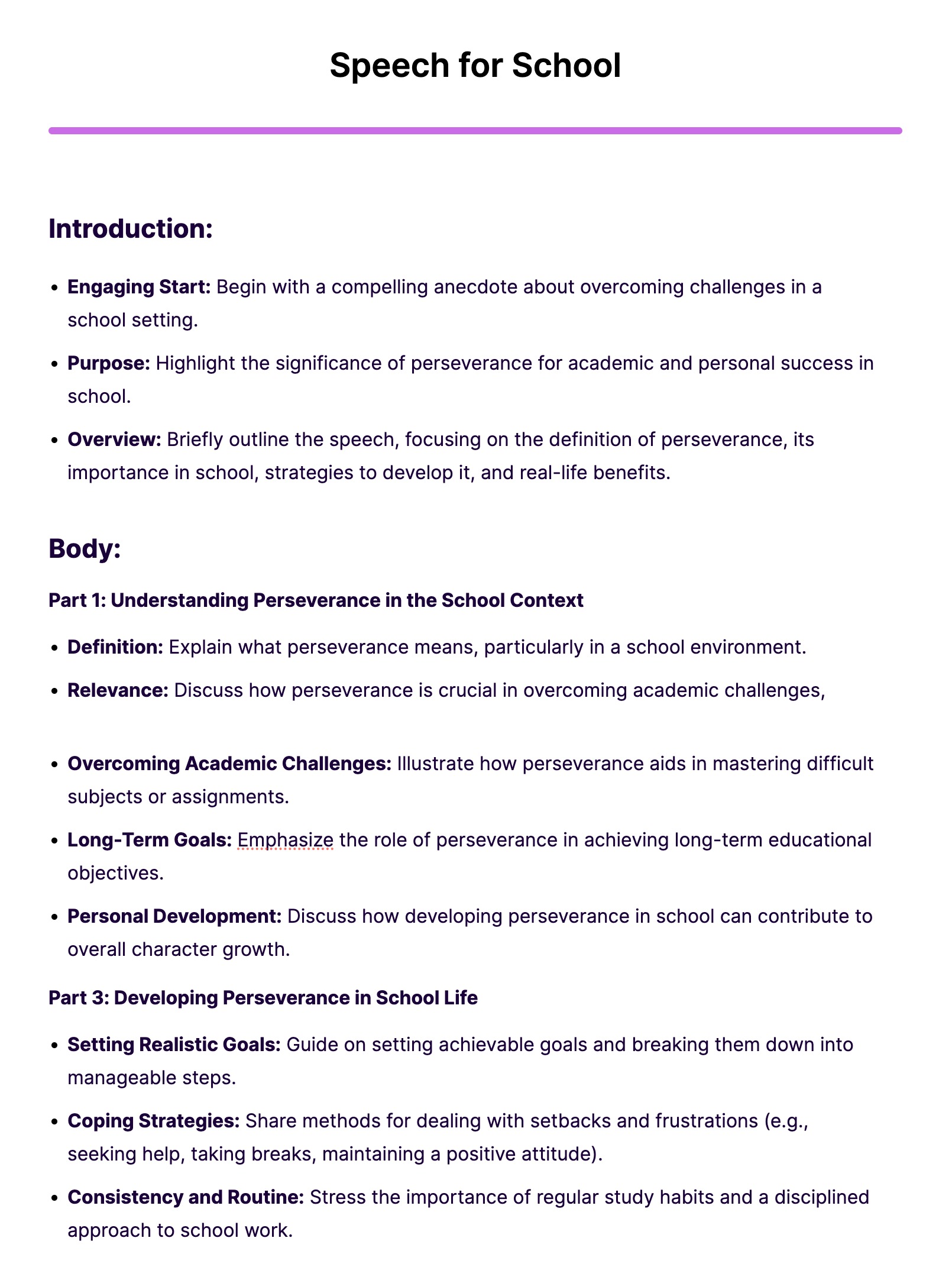
College Farewell
Sample Farewell Speech
Informative Speech Outline
Expository Speech Outline
Graduation Speech Example
Student Graduation Speech
Nursing School Graduation Speech
University Graduation Speech
Graduation Welcome Speech
Graduation Party Speech
High School Graduation
What Is a Speech?
A start a speech, as defined by most website dictionary is a communication or expression of thoughts in spoken words. But most expert orators and speech writer define speech as a formal address given to a large number of people that the purpose of is to persuade, inform, convince, and seek to inspire the people.
However, speech these days, are used to inform people about something or someone. To give them knowledge and information about something that has not been known or is hidden from them. A informative speech is also used to express an emotion and to make a strong stand about one’s belief.
How to Outline a Speech
Speech outline can be a great tool for you to manage your speech and how you will deliver it. Especially if you have trouble in creating and delivering a speech. Here are the steps on creating a speech outline.
Basically, a speech outline has 4 essential steps:
Preparation
- This is the part where you decide your topic and your main subjects.
- Determine your audience.
- Identify your purpose.
Introduction
- Create a compelling and attention-getter introduction speech.
- State your main subjects and main points.
- An overview of your whole speech
Body
- Use a transition statement to connect your body to the introduction.
- Discuss your main subject.
- Use supporting details.
Conclusion
- The summary of your speech
- Strong closing statement.
Speech Outline
Persuasive Speech
Informative Outline
Components of Speech
Effective verbal communication of your ideas and thoughts to others is the general aim for speech classes. Before that, let us take a closer look at the components of writing a speech:
1. Voice
From the moment we first draw breath and announce our arrival into the world, our voice comes into play, a unique amalgamation of our vocal folds and breath to produce sound. This essential aspect of communication, varying distinctly from person to person, is shaped by a myriad of factors including our physiological makeup. It’s particularly pivotal in presentation speech, where the voice becomes more than just a tool for sound; it’s a medium for conveying ideas, emotions, and intentions. In the realm of public speaking or presentation, the voice serves as a powerful instrument, capable of influencing, persuading, and engaging audiences, transforming the mere act of speaking into an art form that resonates and leaves a lasting impact.
2. Articulation
Another component for speech which is equally important is our ability to articulate or control our voice. Meaning how we make the sound of something. Proper articulation also effective leadership speech or oral communications.
3. Fluency
Fluency in speech, akin to rhythm in music, is a skill honed through practice. It encompasses the ability to modulate speaking pace, balancing speed with necessary pauses and breaks. This aspect of verbal communication is crucial in special occasion speeches, where the flow and tempo of words significantly impact the effectiveness of the message conveyed. Mastery of fluency transforms speeches into captivating performances, engaging audiences and delivering messages with clarity and impact.
Tips for Giving a Speech
To deliver a powerful and meaningful speech, take note of our hand-picked tips on giving a welcome speech. This is specially made for both newbie and veteran when it comes to giving a speech to the audience.
- Prepare ahead of time. This is important for you to reduce your anxiety and the nerve-wracking feeling.
- Determine your topic. Before giving a speech, you must know and master your topic and the material that comes with it. It is best if you pick a topic that you are interested in or you have a massive background about it.
- Know your audience. When it comes to giving speeches, the best thing to do is to have a little background check of who will be your potential audiences. That way you will know if you could use some self-introduction speech.
- Have a quick tour of the room or place where you will give your speech. So that, when the time comes you can maximize your placement on the stage and you will know where to go and face the audience.
- Think like a performer. With the above said that you have to maximize the stage, you also have to walk around, speak to the audience, and use hands gesture to signify your strong emotion about your speech.
- Practice makes (almost) perfect. The keynote speech to every successful speech is practice. Rehearse your speech over and over again to find any mistakes and awkward moments. It is also best to practice your speech in front of your friends or family to give you the feeling of what it is to be in the real situation.
- Be confident. You have to believe in yourself that you can give a successful speech so that the audience will also believe in that too.
Follow those tips and you are good to go. Also, if you want to know more about how you can give an amazing speech, you can browse our speech templates and examples here.
What Is a Speech Template For?
A speech template serves as a guide to simplify speech writing. It does not contain the word-for-word details of the speech outline its basic parts. Common speech examples contain these three essential parts:
- Introduction – It often starts with a quote, a question, or a story.
- Body – This is where the topic’s main points are thoroughly discussed. A written copy of the speech should present important phrases only.
- Conclusion – A summary of what was presented is given. A remark or a call to action serves as thestatement of conclude speech.
How to Start a Speech
To start a speech, you must know the purpose of the speech you are making.
Is it a speech for special occasions? Should it be serious or can it be playful? A special occasion speech has the power to set a mood in a room. For instance, a graduation speech must be encouraging and inspiring. It must be able to garner attention from an audience.
Once you are able to determine the purpose of the speech, it would be easier for you to organize your words into the main parts of the speech.
Persuasive Speech
How to Give a Professional Persuasive Speech
3 Minute Speech Example
Tribute Speech Example
Tribute on Retirement
Parent Tribute Speech
Types of Speech
Speeches are divided into three types: Informative, persuasive, and impromptu.
- Informative speech. This speech focuses on giving the audience complete (or partial) information about people, events, things, and life. Informative speeches are often used in curricular activities.
- Persuasive speeches. Persuasive speech talks about facts, opinions, the point of views about issues or controversies. The speech must tailor the message to the audience for it to become effective.
- Impromptu speech. This speech is done with little or without preparation. A high speech skill is required when giving this speech.
You can check out our examples speeches here to give you more ideas about the three types of speeches. You can use it in your graduation speech or in your thank-you speech.
Importance of a Good Speech
There are numbers of reason why a good speech is important. There’s a lot actually. I could only name 3 on top of my head.
- It can gain positive perception and opinion from the audience. A good speech does not only make the audience “wow,” it can also give you significant feedbacks from them that you can use in your future development.
- It can express fully your emotion and feelings. You can express what you really want the audience to feel about your speech.
- It can provide complete information. Having said that, a good speech will also make the audience understand and comprehend of the topics you have discussed.
Retirement Speech
Teacher Retirement Speech
For the Retirement of Administrative Assistant
Farewell Speech Example
Salutatorian Speech Example
Guidelines for Creating a Speech Outline
As a speaker, you are given the floor to discuss a particular topic over a span of time. Regardless of the type of audience you may face, it’s always best to come prepared. One way is by constructing a speech template as your guide. Here are some guidelines you can take note of when making your speech template:
- State the purpose of your speech. Whether you wish to inform, to persuade, or to pay tribute to something, determining your purpose will make it easier for you to approach a topic.
- Set a time frame. It’s easy to get carried away while speaking in front of a crowd. Allocating a time limit for the main parts of your speech is a good way to stay on sample schedule.
- Identify the main idea. The main idea will serve as a basis for your thoughts. This will guide you in crafting the main points and the sub points of your speech.
- Include an attention-getter. This is usually found at the start of your speech. It could be a compelling question or a witty story, anything that is sure to grab everyone’s attention from the very start.
- Keep it structured. An effective way is by using roman numerals instead of bullet points. It presents a step by step guide for important details to remember and include in your speech.
- Avoid sequencing your main points in a random order. This is to avoid confusion especially when presenting conflicting statements.
- Observe proper transitions. Transitioning statements and ideas can be challenging. You must be able to gradually transition one point to another.
- Present supporting evidences. If necessary, it’s good to state facts and their sources especially when delivering an informative speech. This is to establish credibility in your speech.
Examples of Introduction Speech
Self Introduction Sample
Informative Speech Concept Example
Informative Speech for a Group
Welcome Speech Example
Wedding Welcome
Formal Welcome Speech
Public Speech Example
Awareness Speech
Purpose of a Speech Template
To deliver a good speech, it’s important to come prepared. For instance, you were asked to prepare a presentation speech about your boss. You don’t know a lot about him, so you need to conduct your research on that matter. Of course, it can also be intimidating to present a significant individual in front of a large audience. A speech template will allow you to keep important notes and details on hand. It also creates structure for your speech and it ensures that your ideas flow smoothly.
Importance of a Speech Template
A motivational speech requires a lot of time and effort to make. A lot of people would prefer to just wing it instead of taking the time to create one. But the truth is, a speech template will save you time when delivering your speech and it will help avoid any problems caused by inadequate preparation.
A speech template will allow you to sequence information effectively. There’s nothing worse than experiencing dead air while delivering your speech just because you blacked out on what you were supposed to say. You can find various keynote speech examples that can serve as your guide for creating your template.
Motivational Speech Example
Motivational Sports Speech
Wedding Speech
Wedding Welcome
Groom Wedding Speech
What is the Purpose of a Speech?
A speech is generally given to satisfy the following points:
1. Informational
Most speeches are about providing more information about a certain topic or subject. These types of speeches are closely related to lectures but are shorter in nature and provide a brief discussion regarding main points of a topic or subject. You may also see speech examples for students.
2. Persuasive
Sales presentations and demonstrations are the type of speeches that aim to entice the audience into taking the desired action after the persuasive speech. Most sales and marketing personnel make use of such speeches with the aim of having the listeners purchase a product or service.
3. Entertainment
Some presentation speeches are made to serve as form of entertainment during functions or events. An example to such are those speeches on weddings or speech intermissions during programs.
4. Inspirational
Inspirational speeches, often delivered during graduations, sermons, and notably in wedding speeches, are crafted to touch the hearts of listeners and motivate them. Their core purpose is to uplift, instill hope, and encourage resilience in facing life’s challenges, whether they seem insurmountable or not. These speeches serve as a beacon of inspiration, guiding individuals to overcome obstacles and find strength in everyday struggles, making them a cherished element of special occasions.
Elevator Speech Examples
Elevator Speech for College
Personal Elevator Speech
Leadership Speech
Leadership Skills Speech
Presentation Speech Example
Award Presentation Speech
Thank You Speech
Wedding Thank You
Formal Thank You Speech Outline
Award Thank You
Benefits of Speech
Constant exposure and practice in making and delivering speeches produces many benefits and gains to an individual such as the following:
1. Self Esteem
Being exposed to public speaking boosts confidence in your self and in your skills. In fact, speech therapy is recommended for people having issues fitting in society or getting along with people.
2. Self Expression
Self introduction speech provide a venue for an individual to express their opinion and ideas about a chosen topic or subject. This also makes others aware of what that individual feels or thinks about the topic or subject.
3. Personal Development
Writing and delivering speeches eventually increases your knowledge of persuasive strategies and in organizing thoughts for a certain topic or subject improving your critical thinking abilities. You may also see farewell speech examples.
4. Personal Evaluation
Being able to speak in public helps an individual gauge his communication skills and get ideas on how to improve them.
5. Network Connections
Through speaking engagements, an individual can vastly improve connections whether for his personal, social, or professional goals. You may also like dedication speech examples.
6. Career Advancement
Delivering speeches gets the attention of management specially if an individual is adept and skillful at doing so. A good speaker is in turn a good motivator and leader.
effective speech-making is a skill that combines thorough preparation, engaging content, and confident delivery. For a deeper understanding of how to structure a speech, including the introduction, body, and conclusion, the Grand Valley State University Speech Lab provides a helpful guide here. This resource can assist in crafting speeches that are coherent, impactful, and memorable.


